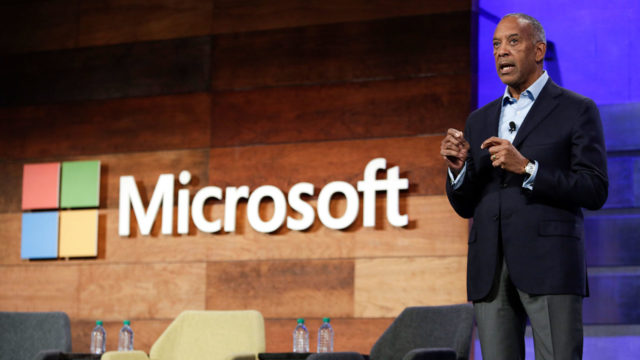
By Chauncey Alcorn, CNN Business
(CNN) — The number of African Americans serving on boards of directors for the nation’s largest corporations has remained dismally low this year despite the ongoing movement to increase C-suite diversity throughout the business world.
Some of America’s most prominent companies are addressing the problem by backing the Black Boardroom Initiative, a new program unveiled Wednesday with a goal of increasing the ratio of Black executives sitting on S&P 500 corporate boards to one in eight by 2028.
Amazon, Microsoft, Starbucks and Zillow are among the major brands sponsoring the initiative, which has been spearheaded by the law firm Perkins Coie with support from Deloitte, a multinational professional services network.
The Black Boardroom Initiative is also working to identify candidates to participate in a six month training and networking program. The group says it wants to raise the visibility of qualified Black director candidates, starting in the state of Washington, where most of the program’s sponsors are headquartered.
“This initiative will help to address this equity imbalance by identifying leading Black executives who are board-ready, preparing them for critical issues that boards are facing today, and establishing a pipeline between program participants and public companies,” Perkins Coie Partner and initiative Co-Leader Stewart Landefeld said in a written statement.
Calls for greater Black representation at the highest ranks of Corporate America increased dramatically in the aftermath of the police murder of George Floyd a year ago. Since then, recent studies show Fortune 1000 companies have made notable progress diversifying their C-suites and boardrooms, but most of those boardroom gains have gone to women and Latinos, not Black Americans.
One-hundred forty-five S&P 500 companies have appointed at least one Black director to their board since last June, according to Latino Corporate Directors Association data recently cited by Bloomberg. In December, Starbucks made Mellody Hobson the chair of its board of directors two years after appointing her to the company’s board.
But the number of Latino corporate board members has quadrupled since last year, according to Bloomberg. Additionally, women now occupy almost one-third of all S&P 500 board seats for the first time ever.
“I think that’s where the consciousness went first, to increase the number of women on boards,” said Cate Goethals, founder of the Better Boards Initiative, a non-profit working to increase board diversity that is supporting the Black Boardroom Initiative.
“Half the population is female,” Goethals continued. “Unfortunately the focus has been on appointing women and only in the recent couple years has their been [focus] on appointing people of color in general.”
Mike Hyter, president and CEO of the Executive Leadership Council believes there’s also a stigma about the talent and abilities of Black executives that needs to be addressed. Hyter’s organization, which is comprised of current and former Black CEOs and senior executives, has been working to diversify corporate C-suites since 1986.
“The perception of limited ability as compared to others is still prominent in spite of the incremental gains, which is why we need to remain vigilant,” Hyter recently told CNN Business.
Amazon is the only major corporate sponsor of the Black Boardroom Initiative that does not have a Black person serving on its board of directors. Amazon points out Walgreens CEO Rosalind Brewer served on its board until February, less than a month after accepting her current position.
Microsoft, Starbucks, Zillow and the application delivery network company F5 all have one Black board member. John W. Thompson has served on Microsoft’s board since 2012. Zillow added Claire Cormier Thielke to its board in October. F5 President and CEO François Locoh-Donou joined the company in April 2017.
The-CNN-Wire
™ & © 2021 Cable News Network, Inc., a WarnerMedia Company. All rights reserved.

































